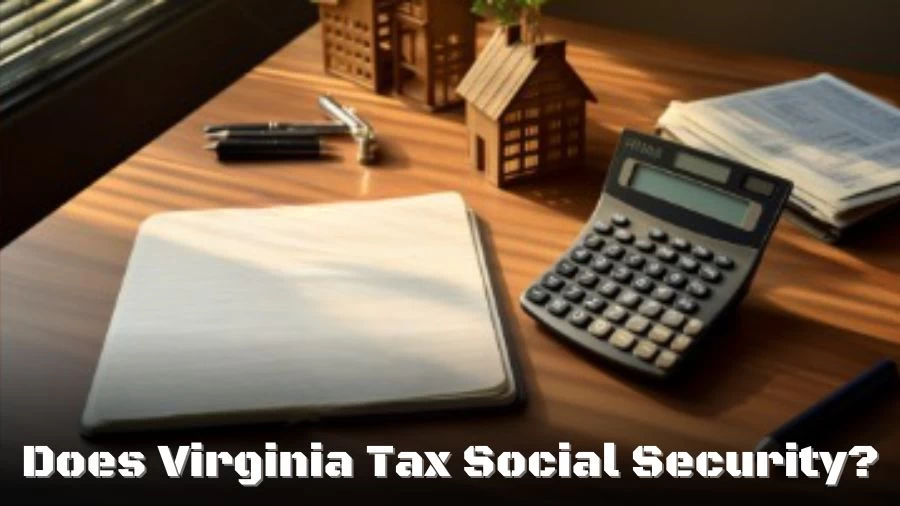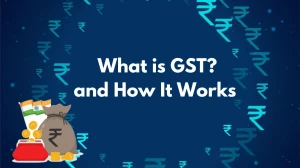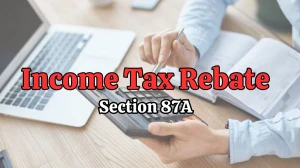
Does Virginia Tax Social Security? When is No Tax Day in Virginia?
Virginia does not tax Social Security benefits. No specific "No Tax Day" exists as traditional tax-free weekends have ended as of July 1, 2023.
by Ayisha
Published Aug 16, 2023 | Updated Aug 16, 2023 | 📖 8 min read
On This Page
- Does Virginia Tax Social Security?
- When is No Tax Day in Virginia?
- Is Social Security Taxed in Virginia?
- West Virginia Sales Tax Rate
- What is the Current Sales Tax Rate in Virginia?
- Virginia Individual Income Tax
- What Are the Income Tax Deductions Available in Virginia?
- Is Social Security Taxable?
- Is Virginia Considered a Tax-Friendly State for Retirees?
Does Virginia Tax Social Security?
No, Virginia does not tax Social Security benefits. According to the sources, while Social Security benefits might be subject to federal taxation in certain cases, Virginia does not impose taxes on these benefits.
This means that if you're a retiree receiving Social Security income in Virginia, you can enjoy your benefits without the added burden of state taxation. It's worth noting that this non-taxable status also applies to Tier 1 Railroad Retirement benefits, ensuring that those who have contributed to these systems can retain a larger portion of their retirement income in Virginia.
Moreover, Virginia offers a deduction specifically aimed at individuals aged 65 and older to further ease their tax obligations. This deduction serves to reduce the portion of their income that is subject to Virginia income tax.
The deduction amount varies based on birthdate, with those born on or before January 1, 1939, being eligible for a fixed deduction of $12,000. For those born on January 2, 1939, or later, the deduction amount is determined by their income level. This tax provision is designed to alleviate the tax burden for seniors and provide them with a financial advantage during their retirement years.
When is No Tax Day in Virginia?
As of July 1, Virginia no longer observes its traditional tax-free weekends, thereby eliminating the concept of a specific "No Tax Day." These annual tax-free weekends, which were held on the first Friday in August since 2015, exempted certain items from Virginia's 5.3% statewide sales tax rate.
This included products like hurricane preparedness items, clothing, school supplies, Energy Star items, and WaterSense items. However, these tax-free weekends ceased to be part of the state's calendar due to the expiration of the legislation that authorized them.
The decision to discontinue the sales tax holiday was the result of Section 3-5.25 of the 2022 Appropriation Act, which stated that the retail sales and use tax exemption holidays authorized by the Code of Virginia would remain in effect until July 1, 2023.
Since no new bills were introduced to renew these tax holidays, they expired this summer without being extended. Consequently, there is currently no specific "No Tax Day" in Virginia, as the annual tax-free weekends are no longer in practice.
Is Social Security Taxed in Virginia?
No, Social Security retirement benefits are not taxed in Virginia. The state has taken a tax-friendly stance towards retirees by exempting all Social Security income from taxation.
This means that if you're a retiree receiving Social Security benefits in Virginia, you can enjoy your benefits without the additional burden of state taxation. Unlike some states, Virginia ensures that your Social Security income remains entirely tax-free, providing retirees with a financial advantage as they plan their retirement years.
In addition to this tax exemption on Social Security benefits, Virginia also offers deductions for other forms of retirement income, such as pension income and retirement account withdrawals.
This is particularly beneficial for seniors, as they can deduct up to $12,000 of these types of retirement income from their taxable income. The combination of these tax policies makes Virginia a favorable location for retirees seeking to maximize their income during their retirement years.
West Virginia Sales Tax Rate
The sales tax rate in West Virginia is structured as follows: the state enforces a base sales tax rate of 6.00 percent. This base rate, however, can be supplemented by local sales taxes, which can extend up to a maximum rate of 1.00 percent.
Consequently, when combining both the state and local sales tax rates, the average combined rate for West Virginia comes to 6.55 percent. This composite rate takes into account both the state and local sales tax components, providing a comprehensive understanding of the overall sales tax burden for consumers and businesses in the state.
West Virginia's sales tax system is designed to generate revenue from retail transactions. This tax is imposed on a range of goods and services purchased within the state. While West Virginia's state sales tax rate of 6.00 percent remains consistent across the board, the potential influence of local sales taxes can result in variations in the total sales tax rate experienced by individuals and businesses depending on their specific location within the state.
What is the Current Sales Tax Rate in Virginia?
At present, the prevailing sales tax rate in Virginia is notably competitive. The general sales tax rate within the state is established at 4.3%, a rate that positions Virginia among the states with lower sales tax burdens.
In tandem with this, certain counties and independent cities add a local tax of 0.7% to the equation. This cumulative local and state tax composition results in a combined sales tax rate of either 4.3% or 6% across the majority of regions within Virginia. However, it's important to acknowledge that certain specific areas might uphold a slightly elevated sales tax rate of 7%.
It's crucial to be aware that while the sales tax does apply to groceries, there is a distinct rate reduction in place for such items. Groceries encounter a reduced sales tax rate of 2.5%, a provision that aims to mitigate the tax burden on essential consumer goods.
Furthermore, certain exemptions from sales tax are designed to extend benefits to retirees. Notably, prescription drugs and a substantial portion of over-the-counter medications are exempt from sales tax, a facet of the tax structure that enhances the appeal of Virginia as a tax-friendly destination for retirees seeking financial solace.
Virginia Individual Income Tax
The individual income tax structure in Virginia operates with graduated rates that range from 2% to 5.75%. If your Virginia taxable income falls within different income brackets, your tax liability will correspond to the appropriate rate for that bracket.
For instance, incomes between $0 and $3,000 are taxed at a rate of 2%, while incomes between $3,000 and $5,000 are taxed at 3%, and so on. The highest tax rate of 5.75% applies to incomes above $17,000.
In Virginia, taxpayers can benefit from several deductions that contribute to reducing their overall tax liability. The state offers both standard and itemized deductions. The standard deduction for 2021 allows single filers to lower their taxable income by $4,500, while married couples filing jointly can reduce theirs by $9,000.
Itemized deductions in Virginia closely mirror federal deductions, and taxpayers can claim deductions for expenses like child and dependent care, foster care costs, certain medical expenses, and contributions to education savings plans. These deductions provide opportunities for taxpayers to optimize their tax situation and potentially lower their overall tax liability in the state of Virginia.
What Are the Income Tax Deductions Available in Virginia?
- Standard Deduction
In Virginia, taxpayers are provided with the option of either the standard deduction or itemized deductions. As of 2021, the standard deduction permits a reduction of taxable income by $4,500 for individuals filing as single and $9,000 for those filing jointly as married. It is important to note that if you opt for the standard deduction on your federal tax return, you are also required to utilize it on your Virginia return.
- Itemized Deductions
For taxpayers who choose to itemize deductions on their federal tax return, a parallel approach is expected for their Virginia return. Most of the itemized federal deductions can be claimed similarly on the Virginia state tax return.
- Child and Dependent Care Expenses
Those eligible to receive a credit for child and dependent care on their federal return can equivalently apply for it on their Virginia state tax return. This provision allows for deductions of up to $3,000 for a single dependent and up to $6,000 for two dependents.
- Foster Care Expenses
In Virginia, foster parents can avail themselves of a deduction of $1,000 per child who permanently resides in their home under the foster care arrangement.
- Bone Marrow Screening Fees
Fees associated with the initial bone marrow donor screening can be deductible, provided that there was no reimbursement and no prior deduction for the fee on the federal return.
Is Social Security Taxable?
Social Security benefits are not subject to taxation in the state of Virginia. This means that retirees who receive Social Security retirement benefits can enjoy them without the burden of state income taxes.
Virginia's tax-friendliness towards Social Security income contributes to its appeal as a retirement destination, providing financial relief and allowing retirees to fully benefit from their earned benefits during their retirement years.
While Social Security retirement benefits might still be subject to federal taxation depending on an individual's overall income, Virginia ensures that these benefits remain untouched by state income taxes, making it an advantageous choice for retirees seeking to maximize their financial well-being.
Virginia's commitment to exempting Social Security benefits from taxation aligns with its broader strategy to create a favorable tax environment for retirees. By offering this tax advantage, the state acknowledges the significance of Social Security as a primary source of income for many retirees and aims to ease their financial burdens during their post-employment years.
Is Virginia Considered a Tax-Friendly State for Retirees?
Virginia exhibits a favorable stance towards retirees through a series of exemptions and deductions. The state takes the beneficial step of excluding all Social Security income from its state income tax.
Additionally, senior citizens are granted the privilege of claiming a deduction of up to $12,000 annually against any alternative retirement income sources. Notably, retirees who primarily rely on Social Security and supplementary retirement earnings that collectively amount to less than $12,000 are exempted from paying state taxes on their retirement income within Virginia.
For senior homeowners, Virginia proves to be a promising destination due to its notably modest property tax rates. Moreover, the combined average of the state and local sales tax rate in Virginia stands at an advantageous 5.63%, positioning it as one of the lowest rates across the nation.
Does Virginia Tax Social Security - FAQs
1. Is Social Security Taxed in Virginia?
No, Virginia does not tax Social Security benefits, offering retirees a tax-free benefit.
2. Are Other Retirement Incomes Taxed?
While Social Security is untaxed, pension income and retirement withdrawals up to $12,000 are deductible for seniors.
3. Are Senior Homeowners Taxed Heavily?
No, Virginia has low property tax rates, benefiting senior homeowners.
4. What's the Sales Tax Rate in Virginia?
Virginia's general sales tax is 4.3%, with local taxes potentially raising it to 6% or 7% in some areas.
5. Do Groceries Have a Reduced Tax Rate?
Yes, groceries are taxed at a lower rate of 2.5% to ease the burden on essential items.
6. Is Virginia Tax-Friendly for Retirees?
Yes, Virginia exempts Social Security income and offers deductions, making it tax-friendly for retirees.




